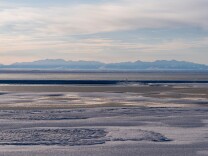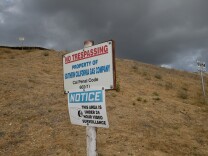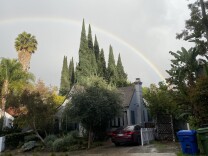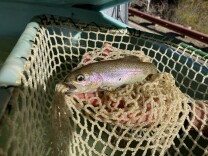
Next Up:
0:00
0:00
-
Listen Listen
Climate & Environment
The Interior Department released its plan to open up federal waters off California’s coast to oil drilling, setting up a direct confrontation with Sacramento on energy and climate change.
Sponsored message
More Stories
-
The federal government pulled $1.2 billion in hydrogen funding for California. Los Angeles is pressing ahead anyway — starting with the Scattergood power plant.
-
Southern California's infamous northeasterly winds are expected to pick up Monday night and last through Thursday.
-
The action followed months of attempts to reduce the number of livestock attacks, including diversionary feeding, use of drones and 24/7 field presence.
-
The Trump administration has finalized a plan to open the coastal plain of Alaska's Arctic National Wildlife Refuge to oil and gas drilling, renewing long-simmering debate over whether to drill in one of the nation's most sensitive wilderness areas.
-
Debate continues about zone zero, the California rules nearing the finish line that would regulate what can be planted and stored within 5 feet of millions of homes.
-
The California Department of Fish and Wildlife seized what they say appears to be at least nine rhino horns and thousands of pieces of elephant ivory from an L.A. County business.
-
Regulations on gas storage facilities have been tightened since the detection of the 2015 Aliso Canyon leak. But residents remain worried about long term health effects.
-
A new study addresses the question, concluding that climate change increased the likelihood of the fires and boosted the amount of land that burned.
-
About 5,000 more plants will be installed this fall, officials say, blanketing what will become a nearly 1-acre wildlife habitat.
-
You may be able to see the Orionid meteor shower from darker pockets of the Southern California suburbs, but the desert and mountains will offer the best viewing.
-
Most survivors of January's fires face a massive gap in the money they need to rebuild, and funding to help is moving too slowly or nonexistent.
-
The annual mosquito season is ending, but some problematic breeding water sources may have been refilled.
Well-meaning city dwellers forgo permits and official procedure to rewild urban areas across the country. In downtown L.A., artist Doug Rosenberg is trying to push the grassroots movement forward.
Listen
4:02
Support your source for local news!
In case you missed it
-
911 recordings obtained by LAist shed light on why and how emergency planning continues to leave people with disabilities behind.
-
LAist investigates illicit dumping at three Antelope Valley sites.
-
An LAist investigation found toxic heavy metals in samples of fire retardant collected from the Palisades, Eaton and Franklin fires. Here's what that means.
More Stories
-
The National Weather Service warns that heavy rainfall could cause floods and debris flow in burn scars.
-
Rob Caves and his partner's Christmas Tree Lane home survived the Eaton Fire, like the majority of houses on his block. But with ash in the air and no drinkable water, few of his neighbors have returned.
-
Churchgoers recruited by Samaritan’s Purse have helped hundreds of Altadenans recover valuables.
-
The Aquarium of the Pacific releases its first report card on local sea life.
-
Pushing out contaminants allows a fresh supply of water to come in.
-
Rainfall totals are likely to be higher than what we saw this week.
-
We talk to experts about the safety of the technology and its role in the rebuild.
-
A 2019 infrastructure report card gave the state’s levees a "D," citing that despite significant investments, much more work is needed to rehabilitate and improve them.
-
Skies will clear this weekend. There's potential for another storm next week.
-
Wet weather after the Palisades Fire threatened to wipe out the local population of an endangered fish.




































